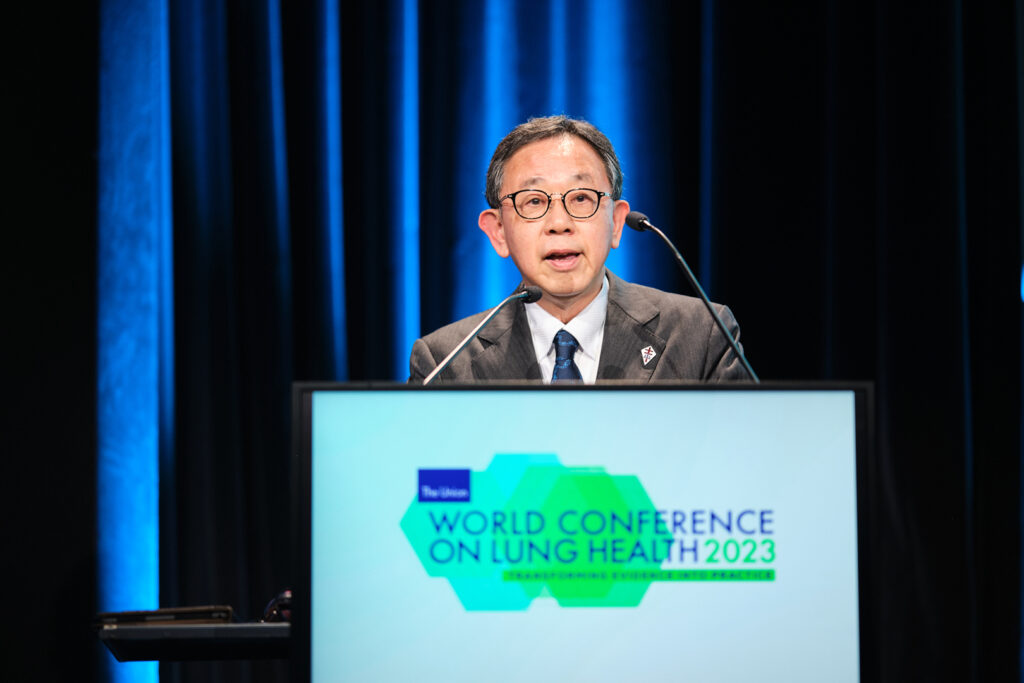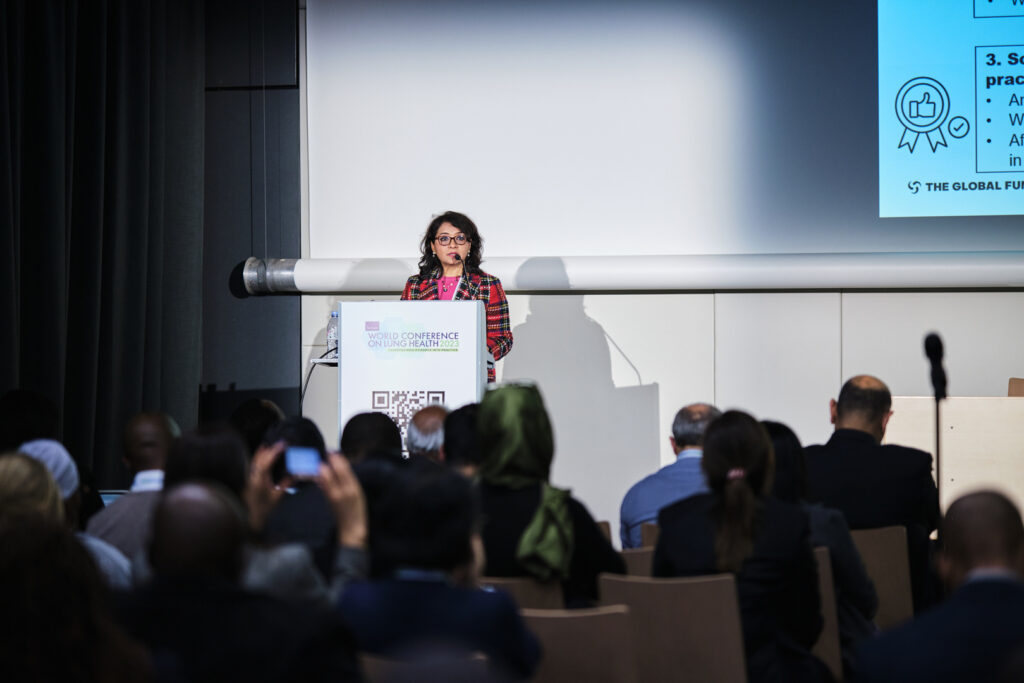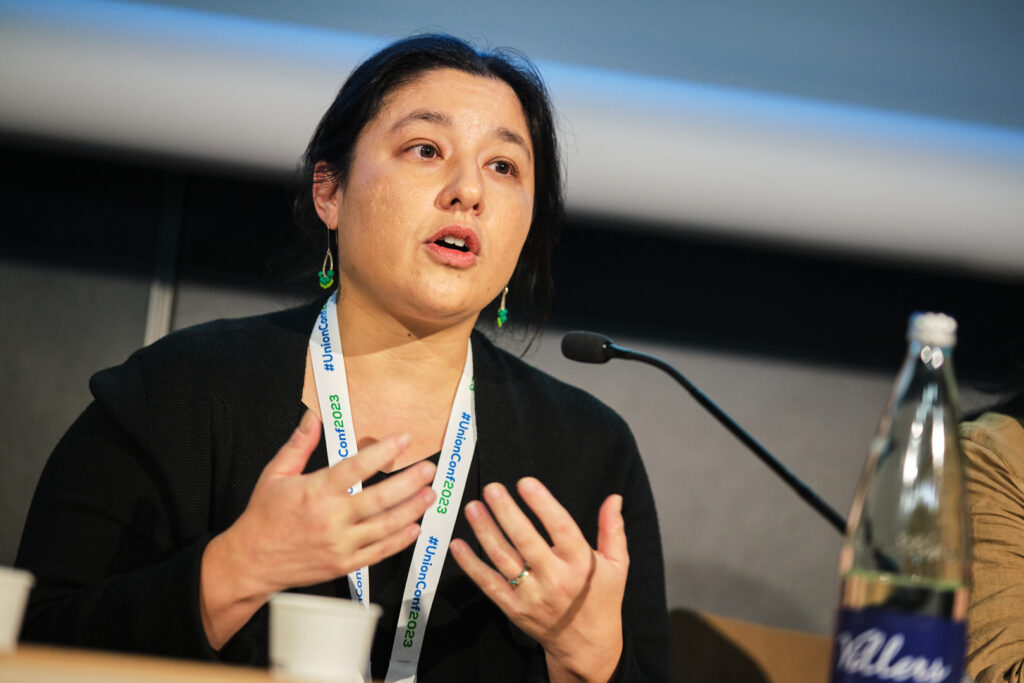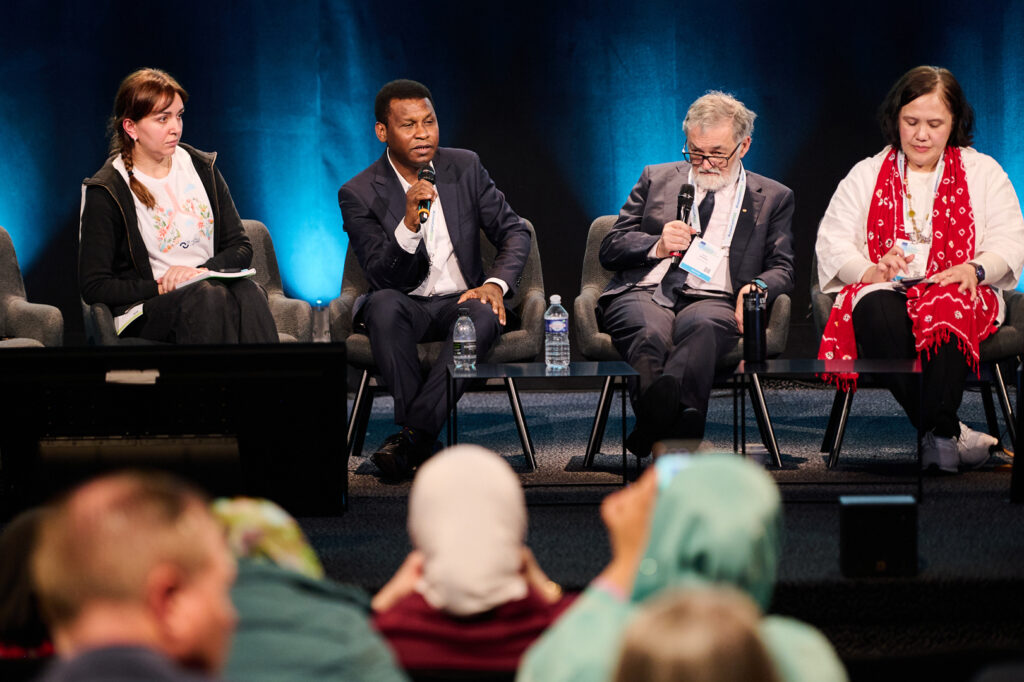Scientific Sessions

Abstract
An Abstract is a brief summary of scientific research or an analysis on a specific topic. Once submitted, abstracts are peer-reviewed and, if accepted, are organised by track and core content into oral or e-poster sessions by the Coordinating Committee of Scientific Activities (CCSA).
Review Criteria
Submission Guidelines
Abstract Mentor Programme

Post-graduate Course
A Post-graduate Course is an educational and informative session with presentations that is either three-hour (half-day) or six-hour long (full-day). Post-graduate courses will be held on 12 November.
Note: Sessions with fewer than 10 enrolled participants 8 weeks before the start of the conference will be cancelled.
Review Criteria
Submission Guidelines

Workshop
A Workshop is a practical and audience-engaging session that is either three-hour (half-day) or six-hour long (full-day), including presentations and practical exercises. Workshops will be held on 12 November.
Review Criteria
Submission Guidelines

Satellite Session
A Satellite Session is either an educational or an industry organised activity that is supported by individuals, non-profit groups, organisations or commercial entities. Satellite sessions are up to 90 minutes long and are normally scheduled outside the core programme.
Review Criteria
Submission Guidelines

Symposium
A Symposium is a 90-minute session with up to five speakers on a specific topic but with different perspectives and/or settings. Once submitted, symposium submissions are peer-reviewed and, if accepted, organised by track and core content by the CCSA.
Review Criteria
Submission Guidelines
Session Submission Guidelines
Abstracts, Symposia, Post-graduate Courses, Workshops submissions will open on 20 February 2024 and will close on 11 April 2024 at 23:59 Central European Time (CET).
Satellite session submissions are open on 20 February 2024 and will remain open until 30 May 2024 with a second round of submissions from 31 May – 1 August 2024.
Each session must be submitted under one of the official tracks for the conference, available here: List of tracks
Important note:
IMPORTANT: Chairs and speakers are required to register to attend the conference.
Selection Review System
The Coordinating Committee of Scientific Activities (CCSA) of The Union World Conference on Lung Health bases their programme selection decisions according to a pre-defined review system.
- Satellite Session
- Symposium
- Post-graduate Course
- Workshop
- Review Criteria
Satellite Session Guidelines
Satellite Session Fees
|
Satellites
|
Price
|
NGO*
|
|
|---|---|---|---|
|
Morning (08:00-09:00) 13-15 November
|
Up to 60 minutes
|
€ 12,500.00
|
€ 8,000.00
|
|
Morning (08:00-09:30) 16 November
|
Up to 90 minutes
|
€ 35,000.00
|
|
|
Afternoon (14:30-16:00) 12 November
|
Up to 90 minutes
|
€ 35,000.00
|
|
|
Afternoon (12:30-14:00) 13-15 November
|
Up to 90 minutes
|
€ 35,000.00
|
|
|
Evening (18:00-19:30) 13-15 November
|
Up to 90 minutes
|
€ 20,000.00
|
€ 16,000.00
|
* NGO rates are available for non-for-profit organisations with an annual operational budget of less than €20 million.
For further information contact: partners@theunion.org
Satellite Session Submission
Having carefully reviewed the guidelines, list of tracks, review criteria, and submission fees, please make your submission here :
Symposium Guidelines
Workshop Guidelines
Workshop fee
|
3 hours
|
6 hours
|
|---|---|
|
€ 3,800.00
|
€ 7,600.00
|
| TOPICS TO BE SCORED | EXPECTED | SCORING | |
| Objectives | Clear and concise statements adequately describe what the authors/presenters expect participants to take away after the session. | 0 = not described 1 = very poor 2 = poor 3 = average 4 = above average 5 = excellent (Weight = 0.5) | |
| Coherence of sessions | Titles of presentations describe its contents appropriately, contents of the individual presentations are consistent with the objectives of the session and there is a noticeable theme across presentations. | 0 = not described 1 = very poor 2 = poor 3 = average 4 = above average 5 = excellent (Weight = 1) | |
| Relevance/ advances in the field | Sessions are on topics of current interest as well as new evidence/information, approaches and updates on practice related to the subject are provided. | 0 = not described 1 = very poor 2 = poor 3 = average 4 = above average 5 = excellent (Weight = 1) | |
| Impact | Findings presented that are likely to change participant knowledge and/or practice.
| 0 = not described 1 = very poor 2 = poor 3 = average 4 = above average 5 = excellent (Weight = 1) | |
| Stigmatising language | Please follow the guidelines laid out in the Stop TB Partnership’s publication, Words matter language guide. Key stigmatising words/phrases will be highlighted by the system for reviewers to consider. | -1 = yes 0 = no (Weight = 1) | |
| Country representation | This will be pre-populated by the Secretariat | 0 = only 1 country represented 1 = two to three countries represented 2 = four or more countries represented (Weight = 1) | |
Maximum score: 19.5
Abstract Submission Guidelines
Submissions of abstracts, symposia, post-graduate courses and workshops will open on 20 February and close by 11 April 2024 at 23:59 Central European Time (CET).
All abstracts must present original research and at least preliminary results; abstracts reporting data pending will not be accepted. Submission implies that the material has not previously been presented or published elsewhere before presentation at The Union World Conference on Lung Health 2024. Abstracts are placed under embargo until they are presented at the conference.
Find out about The Union’s Abstract Mentor Programme.
List of Tracks
Your abstract must be submitted under one of the official tracks of the conference. You can view the list of tracks here.
Selection Review System
The Coordinating Committee of Scientific Activities (CCSA) of the Union World Conference base their programme selection decisions according to a pre-defined review system.
-
Abstract Guidelines
-
Abstract Review System
Abstract Guidelines
Abstract Review System
| TOPICS TO BE SCORED | EXPECTED | SCORING |
| Relevance | The research question is relevant. The study/intervention addresses current, relevant scientific or public health issues; the study/intervention findings are important and will likely contribute to new knowledge, practice, policies or programmes. | 0 = not described/irrelevant 1 = minimal relevance 2 = somewhat relevant 3 = relevant 4 = very relevant 5 = extremely relevant (Weight = 1.0) |
| Methods /intervention or response | The study design/intervention is appropriate, given the objectives/challenges. | 0 = not described 1 = very poor 2 = poor 3 = average 4 = above average 5 = excellent (Weight = 1.0) |
| Results/impact | Results/impact are in line with the analysis methodology and objectives; scope, generalisability, feasibility and robustness of findings are satisfactory. | 0 = not described 1 = very poor 2 = poor 3 = average 4 = above average 5 = excellent (Weight = 1.0) |
| Clarity of the message | The study’s objectives/challenges or working hypotheses are clearly stated. The text is concise and objective, the conclusions are clear and congruent with the results and the final overall message is clear. | 0 = Unable to understand abstract/no conclusions 1 = very poor (i.e. Abstract is confusing. Conclusions not supported by results) 2 = poor 3 = average 4 = above average 5 = excellent (i.e. Abstract exceptionally well written. Conclusions congruent with results) (Weight = 0.5) |
| Originality | The study, methodology/implementation, context and/or findings are new or novel. | 0 = not described 1 = very poor 2 = poor 3 = average 4 = above average 5 = extremely novel (Weight = 0.5) |
| Stigmatising language | Please follow the guidelines laid out in the Stop TB Partnership’s publication, Words matter language guide. Key stigmatising words/phrases will be highlighted by the system for reviewers to consider. | -1 = yes 0 = no (Weight = 1) |
Maximum score: 20
Abstract Mentor Programme
The goal of The Union’s Abstract Mentor Programme is to provide an opportunity for individuals with limited experience in writing and submitting abstracts to work with a volunteer mentor (someone with notable experience). Mentors review and provide feedback on the writing and content of an abstract.
Steps
General rules:
• The process is neither anonymous for the mentor nor for the mentee.
• The draft abstract submitted must follow the submission guidelines.
• Each delegate is allowed to submit only one abstract to the mentorship programme.
• The administrator of the mentorship programme will immediately return abstract drafts to the author without review if they do not follow the submission guidelines.
• Mentors assist by reviewing the content, writing and format. Some technical support on research methods, analysis, or the report of results may be provided.
• Mentors cannot indicate if they think that the abstract is likely to be selected or not.
